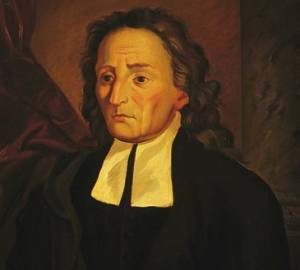Table of Contents
Sensus Communis
Gadamer Sensus Communis pages 17-27 Truth and Method
Within the humanistic tradition what is to be learned from what we call knowledge, truth and understanding?
Sensus communis is yet another term I had never encountered before. In checking other sources I uncovered that Sensus Communis in rhetoric can be used to mean a whole set of unstated assumptions, prejudices, and values that an orator can take for granted when addressing an audience. 1 The term has been identified with the thought of a 'sense' we have in common or rather something we all have.
A philosopher that spoke of this sense was Giovanni Battista (Giambattista) Vico or Vigo (23 June 1668 – 23 January 1744) an Italian philosopher, rhetorician, historian, and jurist. Gadamer says that Vico's ideas are based on old truths (p. 17). Vico's ideas are built upon the ideal of eloquentia within a classical concept of wisdom. Eloquentia is rhetoric or saying something well, not just the art of speaking but also speaking a truth that is understood by others. However while he criticizes Vico, he reminds us that we go nowhere without the wisdom of the past.
Sensus communis can also be thought of as a basic human truth that is rooted in a common way of being. I wonder does that make it a universal truth? And what happens when the way we live in the world changes? I think at this point of my understanding I believe that Gadamer wants us to build on historical thinking but to move away from a truth that is singular and towards truth that brings many possibilities.
Shaftesbury in the eighteenth century described sensus communis as a restrained, customary, and regular way of thinking. It was not a capacity given to all. Gadamer tells us Shaftesbury viewed this to be a social virtue that is tied to the moral. He says that Shaftesbury's notion of a common sense had lost it's political connection and was associated more with theoretical judgement. Friedrich Christoph Oetinger (May 2, 1702 - February 10, 1782) 2, was a German theosopher that combined this humanistic, political view with the peripatetic(Aristotle). I do not at this point understand what is Aristotle's doctrine of nous. For Oetinger this is the divine mystery of life. He believed that even if one commits an extreme sin one could find their way back to God through the grace of God. These practices exposed him to the attacks of persons who misunderstood him. He is associated with Pietism in the eighteenth century which relied on this notion of restraint and added a layer of living knowledge.
I am drawn towards this notion of living knowledge I also see that there is a constant need to renew adaptations in new situations. It seems reasonable that understandings should rely on a generative rather than demonstrative method.
To summarize I think today generally when we use the term common sense we are referring to more of a practical knowledge and not so much this living knowledge. I had not thought of this expressions diverse history before now. My thinking is that in the 21st century it would serve us better to think of this sense in more of a theoretical fashion given that we now view knowledge as vast and varied. How could a singular or a universal truth help us navigate this complexity? So knowledge in this communal sense can't be a truth that is singular. Gadamer speaks of the old Aristotelian distinction or perhaps the duality between practical (phronesis) and theoretical knowledge. The practical being knowledge that follows a rational method and is directed towards a concrete situation it must 'grasp the circumstance'. “The sensus communis is created not by logic but by original, archaic human speech which bursts forth from the human condition itself.”A rational method analyzes the case, this means to break it apart or break it down. The Verene philosophy suggests that “Reason can be used to tear apart bad arguments and it can be used to apply universal principles to particular cases. But reason as an instrument of analysis on its own is uncreative. It is not an instrument of creativity or discovery. Reason can apply universal principles but it cannot discover them”(p.1) 3 . I hear teachers talking about this sort of thing often. They say, “how can I use this tomorrow in my classroom?”. I question how this practical knowledge can even in variety be of use if it is directed towards one circumstance? Students today live and learn in a nebulous networked world full of ambiguity. How is it that we want to measure understanding and truth in such a flat way? How does this thinking help us adapt to new situations?
Stuewe, Nancy. “Sensus Communis.” 5-18-2009. <http://doctoralconversation.blogspot.com/2009/05/sensus-communis.html>.
